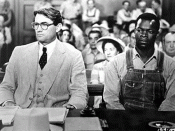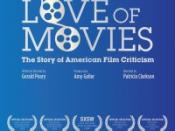He Auteur Have Known Better.
Andrew Sarris and the politicization of American film authorship.
Andrew Sarris first gained prominence through the importation of many of principals first presented within the pages of Cahier Du Cinema, a French journal which dealt solely with the critical interpretation of films, and the goal of creating standardized set of film theories. Many of the CahierÃÂs most innovative beliefs were rooted in the critical appreciation of American film, a previously marginalized art form, which offered a refreshing alternative to the stagnant nature of their own national cinema. Cahier critic Francois Truffault, attempted to justify the appreciation of this popular cinema through the creation standardized form of film criticism which was not too complex limit its possibility to be widely adopted, but also not in-depth enough to offer an honest depiction of the true intricacies of American filmmaking. The creation of this auteur-based approach seems to have functioned mostly as an attempt create an imaginary value system, which justified the elitist appreciation of such a populist art form, in the process making its pleasures less obtainable to those who represent itÃÂs originally intended audience.
As an American film critic, Andrew Sarris believed that many theories first presented in the Cahier Du Cinema could be utilized to spark a creative revaluation of his own national cinema. Attempting to offer a criticism of the tradition form of American film analysis which tended to emphasis the notion of ÃÂHollywood directors as artisansÃÂ rather than as artistsÃÂ1 he interpreted the theory of "la politique des auteurs" into a more nationally identifiable context. In 1962, unaware of the immense scrutiny which would soon follow, Sarris published the radical article ÃÂNotes on the Auteur TheoryÃÂ in an obscure journal entitled Film Culture. What was merely intended to be a theoretical essay explaining...


